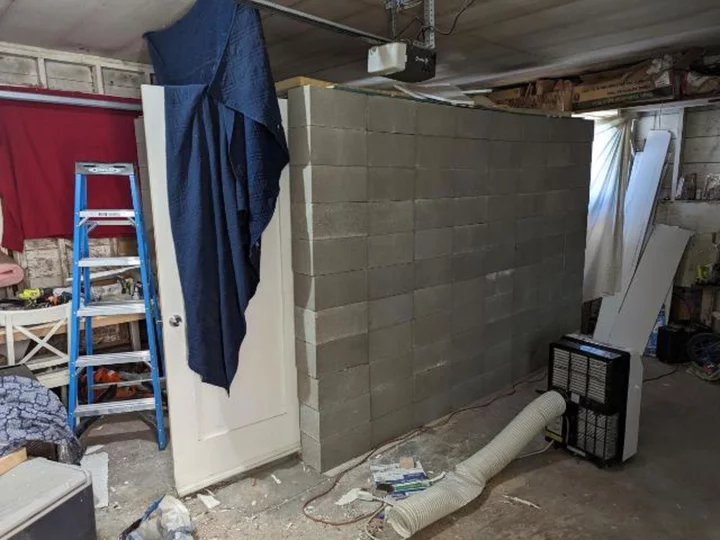The death of a mentally ill teenager after he drank excessive amounts of water may have been prevented if his care and treatment had been delivered differently, an investigation has found. The 18-year-old was admitted out of hours to an adult mental health service inpatient unit in a health board neighbouring his own on 5 December 2018 as there were no local beds available – a move described in the report as a “high-risk action”. On the evening of 7 December, he suffered a seizure after drinking too much water and was transferred to intensive care. He died three days later from the consequences of water intoxication. The teenager, referred to as Mr D, had previous contact with Child and Adolescent Mental Health Services (CAMHS), where he had been treated after drinking an excessive quantity of water. He was diagnosed with early onset psychosis and received two years of community-based CAMHS care. An anonymised investigation by the Mental Welfare Commission for Scotland concluded there were “aspects of the care and treatment delivered by each health board which had it been conducted differently, might have prevented Mr D’s death”. The report, which made 10 recommendations, also said: “A more assertive approach to the treatment of Mr D’s psychotic illness in the two years before his death was warranted.” Mr D’s death came almost two years after he was first admitted as an emergency to an acute general hospital in January 2017 following a seizure due to water intoxication, aged 16. The seizure was induced by drinking large quantities of water, which he believed would remove toxins from his system. This affected his sodium metabolism (blood salts) with near fatal consequences. He later spent more time as an inpatient and turned 18 while still under the care of the CAMHS specialist psychosis service. The transfer of a very unwell young man with a complex clinical history to another health board area during the night was a high-risk action Suzanne McGuinness, Mental Welfare Commission The service was moving away from a treatment model that supported young people with first onset psychosis for at least three years from the point of diagnosis, towards one in which transition to adult mental health services began around the age of 18. He was admitted to a hospital in Scotland in December 2018 while detained under the Mental Health Act. The investigation also found that during the 70 hours after that admission to hospital, Mr D’s case records from his years of contact with the CAMHS community team were unavailable. The report said: “The failure to impart key clinical details to the treating ward staff during his final admission, both in the provision of all relevant case files and the creation of an informed and updated risk assessment and care plan, meant Mr D was able to engage in risky and ultimately fatal psychosis-driven behaviour without mitigations having been put in place.” The report makes recommendations for change to bodies including the health boards involved, the Royal College of Psychiatrists, NHS Education Scotland and the Scottish Government. They include that the Government should set standards within the next six months for the safe transfer to, or management of patients who present from other health boards. Suzanne McGuinness, executive director for social work at the Mental Welfare Commission, said: “This was a tragic death of a young man while he was being cared for in hospital. “Our report details the actions and decisions taken by teams at the two health boards involved in the lead-up to his death.” She said the risks associated with psychotic illness were “not coherently managed”. She added: “We also found that there were problems in Mr D’s transition from child and adolescent mental health services to adult mental health services. Existing guidance was not adhered to. “We found that although the service had no other viable option, the transfer of a very unwell young man with a complex clinical history to another health board area during the night was a high-risk action. “Mr D’s family told us they felt that they had not been listened to. They felt their concerns were not given due credence.” She urged mental health services across Scotland to read the report and take action where they believe they can make improvements. A Scottish Government spokesperson said: “The death of any person in care is not acceptable. “It is vital that people using our mental health services feel safe and know they will receive the right help, in the right place when they need it. “The relevant health boards and health and social care partnerships in this case have been issued with specific recommendations and learning points alongside general recommendations for all health boards and HSCPs. We expect the commission’s recommendations to be fully implemented. “The Mental Welfare Commission recommended that the Scottish Government set standards for the safe transfer of patients between health boards. “We will publish core mental health standards in the coming weeks to set clear expectations for transitions between and within mental health services.” Read More More parents letting children skip school and take term-time holidays post-Covid Student accused of fatally shooting UNC professor may be mentally unfit for trial Family of man who died while being admitted to psychiatric hospital agrees to $8.5M settlement Charity boss speaks out over ‘traumatic’ encounter with royal aide Ukraine war’s heaviest fight rages in east - follow live
The death of a mentally ill teenager after he drank excessive amounts of water may have been prevented if his care and treatment had been delivered differently, an investigation has found.
The 18-year-old was admitted out of hours to an adult mental health service inpatient unit in a health board neighbouring his own on 5 December 2018 as there were no local beds available – a move described in the report as a “high-risk action”.
On the evening of 7 December, he suffered a seizure after drinking too much water and was transferred to intensive care. He died three days later from the consequences of water intoxication.
The teenager, referred to as Mr D, had previous contact with Child and Adolescent Mental Health Services (CAMHS), where he had been treated after drinking an excessive quantity of water.
He was diagnosed with early onset psychosis and received two years of community-based CAMHS care.
An anonymised investigation by the Mental Welfare Commission for Scotland concluded there were “aspects of the care and treatment delivered by each health board which had it been conducted differently, might have prevented Mr D’s death”.
The report, which made 10 recommendations, also said: “A more assertive approach to the treatment of Mr D’s psychotic illness in the two years before his death was warranted.”
Mr D’s death came almost two years after he was first admitted as an emergency to an acute general hospital in January 2017 following a seizure due to water intoxication, aged 16.
The seizure was induced by drinking large quantities of water, which he believed would remove toxins from his system.
This affected his sodium metabolism (blood salts) with near fatal consequences.
He later spent more time as an inpatient and turned 18 while still under the care of the CAMHS specialist psychosis service.
The transfer of a very unwell young man with a complex clinical history to another health board area during the night was a high-risk action
Suzanne McGuinness, Mental Welfare Commission
The service was moving away from a treatment model that supported young people with first onset psychosis for at least three years from the point of diagnosis, towards one in which transition to adult mental health services began around the age of 18.
He was admitted to a hospital in Scotland in December 2018 while detained under the Mental Health Act.
The investigation also found that during the 70 hours after that admission to hospital, Mr D’s case records from his years of contact with the CAMHS community team were unavailable.
The report said: “The failure to impart key clinical details to the treating ward staff during his final admission, both in the provision of all relevant case files and the creation of an informed and updated risk assessment and care plan, meant Mr D was able to engage in risky and ultimately fatal psychosis-driven behaviour without mitigations having been put in place.”
The report makes recommendations for change to bodies including the health boards involved, the Royal College of Psychiatrists, NHS Education Scotland and the Scottish Government.
They include that the Government should set standards within the next six months for the safe transfer to, or management of patients who present from other health boards.
Suzanne McGuinness, executive director for social work at the Mental Welfare Commission, said: “This was a tragic death of a young man while he was being cared for in hospital.
“Our report details the actions and decisions taken by teams at the two health boards involved in the lead-up to his death.”
She said the risks associated with psychotic illness were “not coherently managed”.
She added: “We also found that there were problems in Mr D’s transition from child and adolescent mental health services to adult mental health services. Existing guidance was not adhered to.
“We found that although the service had no other viable option, the transfer of a very unwell young man with a complex clinical history to another health board area during the night was a high-risk action.
“Mr D’s family told us they felt that they had not been listened to. They felt their concerns were not given due credence.”
She urged mental health services across Scotland to read the report and take action where they believe they can make improvements.
A Scottish Government spokesperson said: “The death of any person in care is not acceptable.
“It is vital that people using our mental health services feel safe and know they will receive the right help, in the right place when they need it.
“The relevant health boards and health and social care partnerships in this case have been issued with specific recommendations and learning points alongside general recommendations for all health boards and HSCPs. We expect the commission’s recommendations to be fully implemented.
“The Mental Welfare Commission recommended that the Scottish Government set standards for the safe transfer of patients between health boards.
“We will publish core mental health standards in the coming weeks to set clear expectations for transitions between and within mental health services.”
Read More
More parents letting children skip school and take term-time holidays post-Covid
Student accused of fatally shooting UNC professor may be mentally unfit for trial
Family of man who died while being admitted to psychiatric hospital agrees to $8.5M settlement
Charity boss speaks out over ‘traumatic’ encounter with royal aide
Ukraine war’s heaviest fight rages in east - follow live









